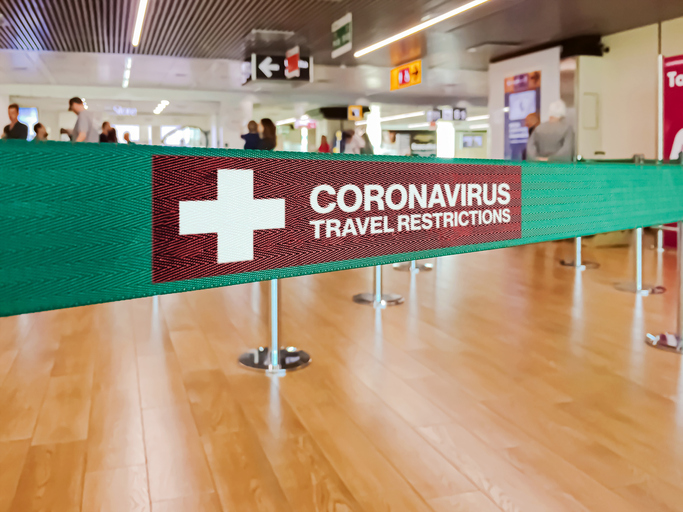Quarantine period of 14 days on arrival to UK
As with many other countries, the UK have enforced a quarantine period of 14 days for travellers arriving in the UK.
As of 8 June 2020, travellers (with some exceptions) arriving in the UK by plane, ferry or train, will be required to complete a 14-day self-isolation period upon arrival.
Before arriving, individuals will be required to complete an online “Contact Locator Form” which includes the passenger’s journey and contact details. Refusal to complete the form could result in a fixed penalty notice of £100 and, in exceptional circumstances, refusal of entry into the UK for non-residents. Spot checks to ensure compliance with the requirement will be carried out by Home Office staff and Public Health England. Those caught flouting the rules, may be fined £1,000.
Exemptions – who does not need to self-isolate or provide contact details
Travellers will not need to fill in the form or self-isolate for 14 days if travelling to the UK from the Common Travel Area (CTA – Ireland, The Channel Islands or the Isle of Man).
Travellers will be exempt from self-isolating for 14 days in some circumstances, including those who are coming to the UK in the following professions:
- Road haulage or road passenger transport worker.
- Transit passenger, who remains airside and does not pass border control.
- Registered health or care professional who will provide essential healthcare.
- Worker engaged in essential or emergency works, in water supplies and sewerage services.
- Worker engaged in essential or emergency works related to a generating system, an electricity interconnector, a district heat network, communal heating, automated ballast cleaning and track re-laying systems or network.
- Worker engaged in essential or emergency works, in specialist rail maintenance and technicians employed on the national rail infrastructure within a specialist team.
- Worker with specialist technical skills, required for essential or emergency works or services (including commissioning, maintenance, and repairs and safety checks) to ensure the continued production, supply, movement, manufacture, storage or preservation of goods.
- An information technology or telecommunications professional required for essential or emergency response relating to the security of a network and information system to ensure continued operation.
- Seasonal agricultural worker with offer of employment for seasonal work to carry out specific activities in edible horticulture on a named farm.
- A person who is employed or self-employed in the United Kingdom and live in another country to which they usually return at least once a week; or employed or self-employed in another country and live in the United Kingdom, to which they usually return at least once a week.
These travellers, will still be required to complete the “Contact Locator Form” and carry their employer issued photo identification card and a letter from their employer which details:
- the individual’s personal details, such as name and address
- contact details of the individual’s employer
- contact details for the business or organisation who the individual will be visiting whilst in the UK
- a description of the work the individual will be performing and why it is essential
Those arriving from the Common Travel Area – CTA who are not required to self-isolate upon arrival. These travellers will only be exempt if they have spent at least 14 days in the CTA before arriving in the UK. This will remove the idea that some travellers could land in Dublin to avoid the measures.
For a full list of who is exempt from the requirements to provide contact details and self-isolate for 14 days, see GOV.UK: Coronavirus (COVID-19): travellers exempt from UK border rules. The rules about who does not need to fill in the form or self-isolate will remain under review and may change in the future. There are variations for Scotland and Wales, so employers should check which regulations apply to their employees who may be affected.
A review of these measures will take place by 29 June, however with growing pressure from airlines and travel companies, the review date may be earlier.
How do other countries compare?
Travellers may also be required to quarantine when they arrive in another country.
- 14-day quarantine rules apply in Greece, Canada, the UAE, Australia and New Zealand and many have introduced temperature checks and entry restrictions.
- Spain will reopen its border to visitors from 21 June, however, the Spanish government has not finalised its plans for quarantine yet.
- Some arrivals in Italy must carry a form to explain their reason for travel.
- France is asking all UK visitors to go into voluntary quarantine for 14 days after arrival.
- The USA only has 13 airports open for international flights and has barred entry for UK arrivals.
- Canada has barred most foreign nationals, and airlines must conduct health assessments.
- The UAE has strict entry rules for foreign residents.
- UK citizens need a special exemption visa to travel to Australia.
What should employers be doing?
Employers should consider agreeing future working arrangements with staff before they travel internationally and should consider whether any amendments are requried to their holiday or company sick pay policies.
Where an employee is unable to work from home during the self-isolation period, employers may wish to consider refusing or deferring holiday requests, designating the self-isolation period as a period of unpaid leave or requiring the self-isolation period to be taken as annual leave.
It is understood currently, that those returning from overseas will not be eligible for statutory sick pay unless they fall into the current eligibility for Statutory Sick Pay (SSP), for example they are displaying coronavirus symptoms or shielding.
The government has not yet indicated whether it will extend entitlement to SSP to employees required to self-isolate on returning to the UK and it may decide not to do so.
Employers should be mindful that guidance is updated regularly so please check the latest publications before taking any action.
FSP can advise you on immigration and employment issues impacted by the COVID19 measures for new migrant employees and returning UK employees.

